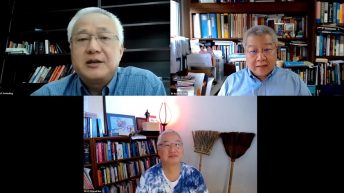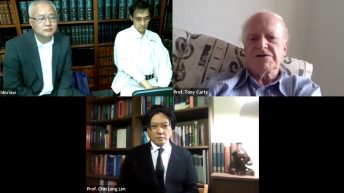Date: 28Jan 2022
Citizen Participation and Government Accountability: National-Scale Experimental Evidence from Pollution Appeals in China
Countries around the world have launched public disclosure programs to stimulate citizen participation in environmental governance, yet little is known about when such participation affects regulation and pollution. We conducted a national-scale field experiment that randomly varied how citizen appeals about violations of pollution standards were sent to regulators or the violating firms. We find that, appealing a firm’s violations to the regulator publicly through social media increased both regulatory oversight and firm compliance, which reduced subsequent violations by 60% and air and water pollution emissions by 12.4% and 3.8%, respectively. In contrast, appealing to the regulator through private channels only caused a marginal improvement in environmental outcomes. Additionally, we randomly varied the proportion of firms subject to appeals at the prefecture-level and find that pollution appeals filed against the treatment firms did not crowd out local governments’ regulation of control firms. Analysis of ambient pollution data and back-of-the-envelope calculations both suggest that encouraging more public participation in environmental governance would lead to significant improvements in China’s aggregate environmental quality.
Speaker:
Shaoda Wang is an Assistant Professor at the University of Chicago Harris School of Public Policy. He is an applied economist with research interests in development economics, environmental economics, and political economy. His main research agenda aims at understanding the political economy of public policy (design, implementation, effectiveness), with a regional focus on China. He holds a BA from Peking University, and a PhD from the University of California, Berkeley. Prior to joining Harris, he was a Postdoctoral Scholar in the Department of Economics and Energy Policy Institute (EPIC) at the University of Chicago.
Discussants:
John Liu is an Associate Professor at the University of Hong Kong Department of Law. His interests include the role of the courts and judicial behavior, as well as law and development. He uses the methods of the data sciences and economics to study these topics. His present research projects include work that takes advantage of large dataset of judicial opinions in China to analyze and predict judges’ decisions and public reactions; using statistical methods to estimate judicial transparency in China; studying law and development with a combination of court data and economic data in China; and performing experimental studies to reveal the hidden behavioral patterns of judges. As a legal scholar who uses AI and big data in research, his interests also extend to the emerging role of AI and big data and their regulation. His work has appeared in a number of academic journals that specialize in law and in China studies, including Journal of Legal Studies, Journal of Legal Analysis, Journal of Empirical Legal Studies, International Review of Law and Economics, American Journal of Comparative Law, and China Quarterly. He teaches business law and economic regulations, law and economics, empirical studies of law, and law and data sciences.
Ying Xia is an Assistant Professor at the University of Hong Kong Department of Law. She received her S.J.D. from Harvard Law School. Her doctoral thesis examines the socio-legal implications of Chinese investment in African countries. During her study at Harvard, Ying was also awarded the Yong K. Kim ’95 Memorial Prize for her work on the connections between China’s environmental campaign and the international trade in waste. She also received an LL.M. in international law and an LL.B. from Peking University. Ying’s research interest includes environmental law, international law, and law and public policy, with a focus on experience from developing countries.
Chair:
Dr. Angela Zhang, Director of the Centre for Chinese Law at the University of Hong Kong




